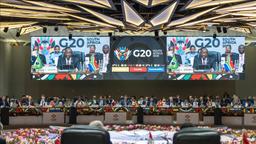
Kamal Malhotra
Non-Resident Senior FellowRelated Publication Files

Evaluation Note / Kamal Malhotra
India was very late in recognizing the strategic importance of Southeast Asia. It now needs to redouble its efforts, to make up for lost time. This will require India to re-energize and infuse its Act East Policy with a 21st century relevant internationalism, learning from the country’s very successful internationalism of the 1950s and 1960s, under its first Prime Minister Pandit Jawaharlal Nehru, who was a true and pioneering internationalist. The re-energized policy should encompass economic, cultural, social, political and military aspects. In doing so, India should ensure that it does not end up competing with China in the East and Southeast Asian regions on Beijing’s terms. We need to win the hearts and minds of the peoples of these two adjacent regions by co-creating and co-providing an alternative platform for a genuine, equal partnership with the peoples of Northeast and Southeast Asia, built and based on trust, a reciprocal and equal partnership and mutual respect.
My personal advocacy for India to have a Look and Act East policy date back to the early 1980s at a critical time in the Philippines when I found myself as one of only two Indians (and the only one who actually lived in the Philippines) actively participating in and contributing to the “Peoples Power” anti-Marcos movement which succeeded in overthrowing that autocratic dictator in the famous 1986 (Epifanio de los Santos Avenue (EDSA) Revolution.
You may read evaluation note from here.




